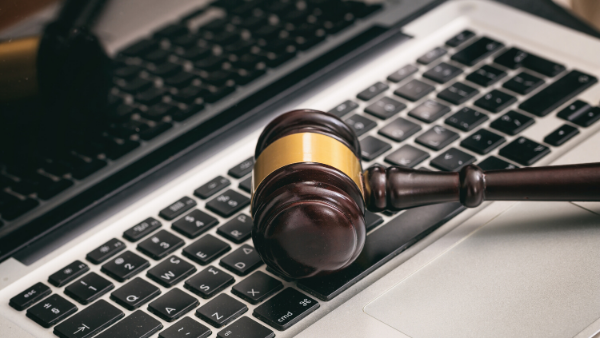How have the courts responded over the last six weeks?
Remarkably well, it would seem. Since our last article which considered the operational capacity of Her Majesty’s Courts and Tribunal Service (HMCTS) and measures it could adopt to minimise the impact of the unknown duration of the Government restrictions, the UK has officially been in lockdown for six weeks.
In this time, HMCTS has committed to increasing its capacity and it has done just that – having trebled teleconferencing capability in courtrooms and hearing rooms by the end of March, making it universally available. New data published by HMCTS this week shows that since 1 April 2020, the courts have conducted 85-90% of hearings each day remotely, either in whole or in part.
The courts have also utilised new platforms, such as Skype for Business. To overcome some of the cultural challenges that remote hearings present, the courts have regularly published practical guidance for professional and public users, with a core focus on upholding the principle of open justice.
In addition, these developments have encouraged lawyers to use this time to share their experiences of participation in remote hearings with others in the profession. The global reach of the pandemic has inspired the Remote Courts Worldwide initiative in which legal professionals around the world contribute their experiences of developing and adapting justice systems from their traditional procedures to remote alternatives. Collaborative efforts, such as these, not only ensure that the courts remain open, but that their work becomes increasingly more transparent.
What is more, there are now plans to extend the use of video hearings in the Magistrates’ and Crown courts in England and Wales to enable certain hearings, such as remand and sentencing hearings, to take place. Whilst video platforms will not be used in jury trials any time soon, this is a significant development in the criminal context.
With remote hearings here to stay for at least the foreseeable future, here are some practical tips to help you feel prepared:
- Usual court etiquette applies – the dress code remains ‘suited’, make sure the room is well lit and you are seated in a professional-looking setting, address the judge as you would in a physical courtroom, and the usual restrictions on eating and drinking apply
- Mute your microphone when you are not talking – for obvious reasons, this avoids disruption to the proceedings
- Join early – this allows any IT issues to be identified and sorted before the Judge is online and commences the hearing
- Make sure your internet connection is strong and reliable and test your microphone before the hearing – again, this reduces the risk of interruptions by identifying issues early
- Assessing natural cues to talk is challenging, but do not talk at the same time as someone else – online systems struggle with this and audibility suffers
- Have separate platforms for communications between legal teams and clients – as the usual ‘post-it-note-placed-discreetly-under-the-nose’ approach to notify Counsel cannot be used, separate platforms are being used for communications between legal teams: e.g. WhatsApp
If you would like to discuss any of the issues raised in this article, or have other concerns about the impact of Coronavirus, please contact Michelmores’ Commercial & Regulatory Disputes team.
CORONAVIRUS STOP PRESS – Click here to keep up-to-date with all of our latest articles.
This article is for information purposes only and is not a substitute for legal advice and should not be relied upon as such. Please contact our specialist lawyers to discuss any issues you are facing.
